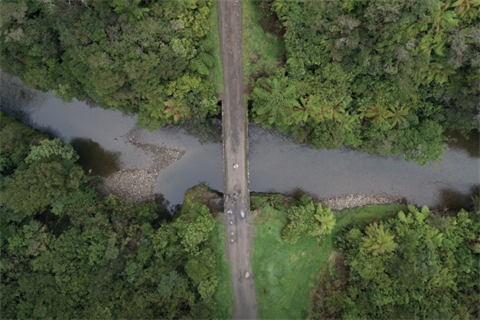Local Water Done Well

As part of the Government’s Local Water Done Well programme and new legislation, every council must consult with their communities on how we deliver water services in the future.
This is to give New Zealanders confidence that drinking water is safe to use, sources of drinking water are adequately protected, and wastewater and stormwater are managed in environmentally sustainable ways.
This new legislation stems from the 2016 Havelock North water crisis and aims to address the significant challenges New Zealand is facing with maintaining and upgrading essential infrastructure.
What is Local Water Done Well?
Local Water Done Well is the coalition Government’s plan to address Aotearoa New Zealand’s long-standing water infrastructure challenges. It replaces the previous government's Three Waters Reform programme but seeks to achieve similar water outcomes.
Key components of Local Water Done Well are:
- fit-for-purpose service delivery models and financing tools
- ensuring water services are financially sustainable
- introducing greater central government oversight, economic and quality regulation.
Local Water Done Well is being implemented in three stages, each with its own piece of legislation.
- Repeal of previous water services legislation.
- Establish framework and preliminary arrangements for the new water services system.
- Establish enduring settings.
Developing Water Services Delivery Plans
As part of this process, councils are required to develop comprehensive water service delivery plans that meet regulatory and investment requirements by September 2025. This will fundamentally change how critical water services are delivered within our districts.
Horowhenua District Council is actively working on a water service delivery plan in response to the Local Water Done Well policy. This plan will outline proposed models for delivering water services and whether we will work independently or collaboratively with other councils.
The water services delivery plan must include a description of the proposed model or arrangements to deliver water services, including whether this will be achieved alone, or by working with other councils.
A regional approach
At a meeting on 27 November 2024 Council voted to put forward three options for public consultation regarding the future of drinking water, wastewater, and stormwater services.
Council considered several options, including continuing to manage water services in-house and collaborating with neighbouring councils for a more sustainable solution.
Council decided to exit participation in both the Wellington Region and the Manawatū-Whanganui Regional Joint Water Services Delivery Plans.
Instead, the following options were put forward for public consultation:
-
Option 2: A Multi-Council Joint Water Services Arrangement including Horowhenua District Council, Manawatū District Council, Palmerston North City Council, and Kāpiti Coast District Council
The decision came after a period of internal review, regional collaboration, and a light-touch community consultation to gather feedback on key priorities such as clean drinking water, effective stormwater management, and affordable service provision.
Visit InfoCouncil for the full Council Report.
Consultation
Consultation was held from 10 March to 10 April 2025. Visit Let's Kōrero - Local Water Done Well to see the consultation documents. Of the 93 submissions received:
- 57% (53 submissions) chose Option 1
- 8% (8 submissions) chose Option 2
- 30% (28 submissions) chose Option 3
- 4% (4 submissions) did not choose an option
Decision
On 4 June 2025 elected members voted unanimously to join Palmerston North City Council and Rangitīkei District Council to form a Joint Water Services Organisation, and recognised Whanganui District Council and Ruapehu District Council as potential willing partners which may choose to join later.
This decision is projected to save the average Horowhenua household between $195 and $300 per year by 2027/28, depending on which councils eventually form the water services organisation.
Modelling suggests that if all five councils joined, savings of over $300m could be achieved over 30 years.
Visit InfoCouncil for the report presented to Council.
Next steps
Ruapehu District Council and Whanganui District Council will decide on their preferred Water Services Delivery Model at Council Meetings in June and July 2025.
Horowhenua District Council will work with confirmed partner councils to produce a Water Services Delivery Plan, which must be submitted to the Government by 3 September 2025.
Submission
Submission - Local Government Water Services Preliminary Arrangements Bill - Horowhenua District Council - 13 June 2024(PDF, 840KB)